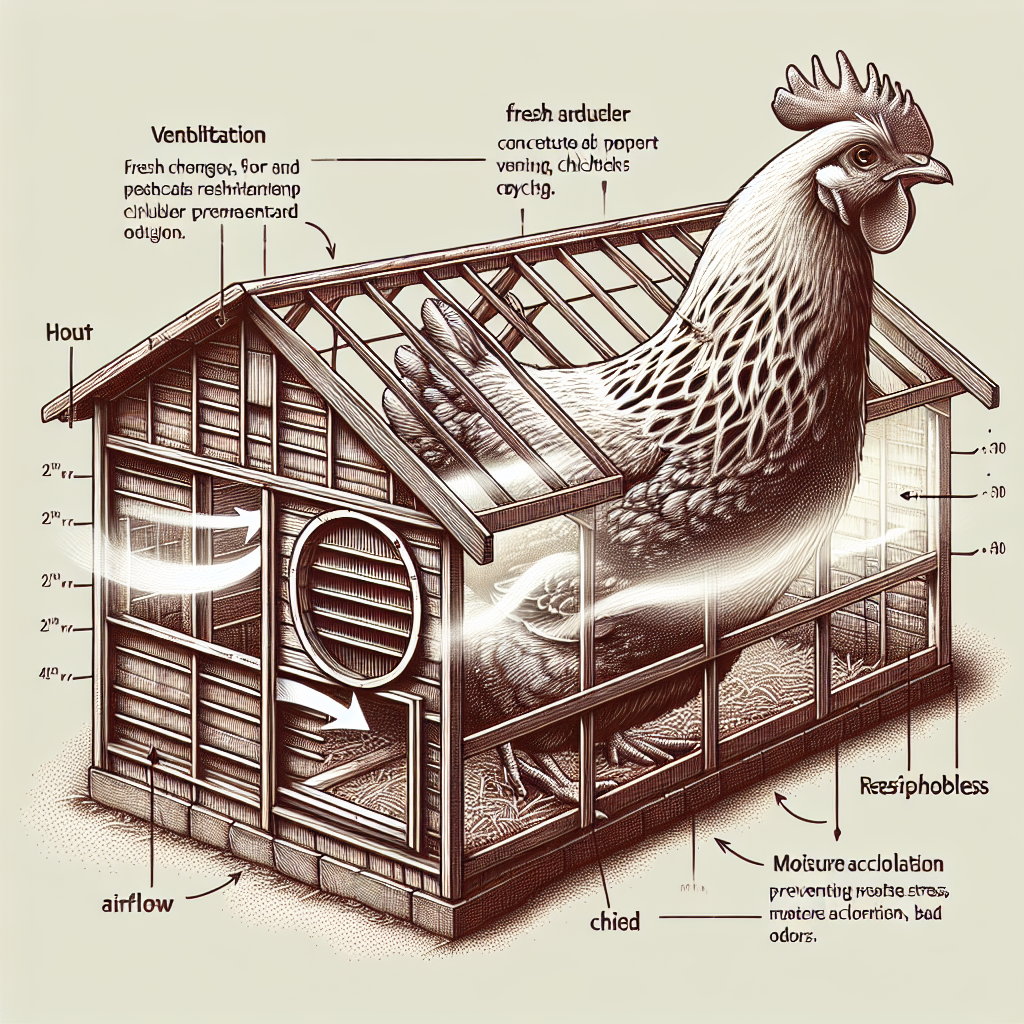If you’re feeling unsure about the health of your chickens, it is essential to reach out to the right resources and professionals. Keeping your beloved flock happy and healthy is a top priority! Don’t worry, you’re not alone in this journey of raising chickens, and there are plenty of people and references available to provide guidance. From experienced poultry veterinarians to online forums dedicated to poultry enthusiasts, there’s a wealth of knowledge waiting to assist you on your feathered friends’ well-being.
Veterinarians
Avian veterinarians
If you’re unsure about your chickens’ health, one resource you can turn to is an avian veterinarian. These are veterinarians who specialize in the health and care of birds, including poultry. Avian veterinarians have extensive knowledge and experience in diagnosing and treating various avian diseases, including those that may affect your chickens. They can provide expert advice on issues related to chicken health, such as vaccination schedules, preventive care, and treatment options for common poultry ailments.
Exotic animal veterinarians
Another option for seeking guidance on your chickens’ health is consulting an exotic animal veterinarian. While exotic animal veterinarians primarily focus on non-traditional pets and wildlife, many of them also have experience and expertise in poultry health. These veterinarians can offer valuable insights and recommendations for maintaining the well-being of your chickens. They can help diagnose and treat any underlying health conditions and provide guidance on nutrition, housing, and overall poultry management.
Livestock veterinarians
Livestock veterinarians are another essential resource for chicken owners concerned about their flock’s health. These veterinarians specialize in the health and well-being of various farm animals, including livestock like cows, sheep, and pigs, as well as poultry. Livestock veterinarians typically have a broad knowledge base and can provide guidance on general poultry management practices, disease prevention, and treatment options. They can also assist with overall flock health management and are typically well-equipped to handle emergencies and perform surgical procedures if needed.
Local Agriculture Extension Offices
County or regional agriculture extension offices
Local agriculture extension offices are valuable resources for chicken owners seeking information and assistance with their flock’s health. These offices are often run by government or university-affiliated organizations and aim to provide education and support to farmers and individuals involved in agriculture. County or regional agriculture extension offices typically have knowledgeable staff who can provide guidance on a wide range of agricultural topics, including poultry health. They can answer general questions, provide educational materials, and may even offer workshops or training programs focused on poultry care.
Extension agents
Extension agents are key personnel within local agriculture extension offices who serve as advisors and educators in the agricultural community. These individuals are often experts in specific fields, such as poultry, and offer valuable insights and recommendations to farmers and backyard chicken keepers. Extension agents can provide information on topics such as disease prevention, biosecurity measures, and best practices for raising healthy chickens. They can also offer guidance on managing common poultry health issues and connect chicken owners with additional resources or professionals who can provide specialized care if necessary.
Farmer Associations or Cooperatives
Local or regional farmer associations
Local or regional farmer associations can be a valuable source of support and information for chicken owners. These associations typically consist of farmers who come together to promote agricultural practices, share knowledge, and advocate for their respective industries. They often provide resources, educational materials, and networking opportunities for their members. By joining a local or regional farmer association, chicken owners can gain access to a community of experienced poultry farmers who may be able to offer advice and assistance regarding their flock’s health.
Poultry farmer co-ops
Poultry farmer cooperatives, also known as co-ops, are organizations formed by poultry farmers to collectively market and sell their products. These co-ops often provide additional services to their members, including educational programs, technical support, and access to industry experts. Poultry farmer co-ops can connect chicken owners with knowledgeable professionals who can provide guidance on various aspects of poultry health. They may offer workshops or training sessions on topics such as disease prevention, nutrition, and proper flock management. By engaging with a poultry farmer co-op, chicken owners can benefit from the expertise and resources available within the cooperative network.
Online Resources and Forums
Poultry-specific websites
In today’s digital age, online resources play an essential role in providing valuable information and support to chicken owners. There are numerous websites dedicated specifically to poultry health and management, offering a wealth of articles, guides, and frequently asked questions. These websites can provide information on various poultry diseases, symptoms to watch out for, and treatment options. Some websites also offer forums or online communities where chicken owners can connect with fellow enthusiasts, share experiences, and seek advice. Online resources can be a convenient and easily accessible option for gathering information on your chickens’ health.
Online communities and forums
Online communities and forums focused on chickens and poultry can be excellent sources of practical advice and support. These platforms bring together a community of chicken keepers who can share their experiences, ask questions, and provide guidance on various poultry-related topics, including health concerns. Participating in online discussions allows chicken owners to tap into a collective knowledge base, where others may have faced similar issues and can offer valuable insights. It’s important to note that while online communities provide helpful information, it’s always best to consult a professional veterinarian for accurate diagnosis and treatment recommendations.
Local Poultry Breeders or Hatcheries
Experienced poultry breeders
Experienced poultry breeders are valuable resources for chicken owners, especially when it comes to specific breed-related health concerns. These breeders have in-depth knowledge of the breeds they specialize in and can provide guidance on breed-specific health considerations, including genetic predispositions and disease risks. They can offer advice on breeding practices, selection of healthy breeding stock, and strategies for maintaining flock health. Connecting with experienced poultry breeders can also provide an opportunity to acquire high-quality, healthy birds from reliable sources.
Local hatcheries
Local hatcheries can be a valuable resource, particularly for new chicken owners seeking assistance with their flock’s health. Hatcheries that specialize in raising and selling chicks often have knowledgeable staff who can offer guidance on basic chicken care, feeding recommendations, and common health issues. They can help you select appropriate breeds for your specific needs and provide information on vaccination programs. Additionally, local hatcheries may have established relationships with veterinarians or other poultry health professionals, which can be advantageous when seeking specialized care or professional advice.
Government Agricultural Departments
Department of Agriculture
Government agricultural departments, such as the Department of Agriculture, are valuable resources for poultry owners seeking guidance on various aspects of poultry health and management. These departments aim to promote agricultural development, ensure food safety, and protect animal health. They often provide helpful resources on poultry health, including information on common diseases, biosecurity measures, and regulations. Government agricultural departments can also assist in reporting and managing outbreaks of poultry diseases to safeguard public health and animal welfare.
Animal health departments
Animal health departments play a crucial role in monitoring and safeguarding the welfare of animals, including chickens and other poultry. These departments focus on disease surveillance, prevention, and control measures to prevent the spread of infectious diseases. Animal health departments often have veterinarians and staff members with expertise in poultry health and can offer guidance on disease prevention strategies, biosecurity measures, and emergency response protocols. In cases of disease outbreaks or suspected infections, contacting your local animal health department can ensure a prompt and appropriate response to protect your flock and the wider poultry community.
Veterinary Diagnostic Laboratories
Animal health labs
Veterinary diagnostic laboratories are essential facilities that specialize in diagnosing and monitoring animal diseases. These labs are staffed by trained professionals, including veterinarians and laboratory technicians, who are experienced in diagnosing various animal diseases, including those that may affect poultry. Animal health labs can provide diagnostic tests to identify pathogens, assess immune responses, and offer recommendations for appropriate treatment or management strategies. Consulting a veterinary diagnostic laboratory can be especially useful when dealing with complex or challenging poultry health issues that require specialized testing or expert analysis.
Pathology labs
Pathology labs, which focus on the study and diagnosis of diseases, can be valuable resources for poultry owners seeking a thorough understanding of their flock’s health. Pathologists in these labs specialize in examining tissues and bodily fluids to identify diseases and evaluate the impact of specific pathogens. By submitting samples to a pathology lab, chicken owners can gain insights into the underlying causes of health issues and receive detailed reports with recommendations for treatment or management. Pathology lab services can be particularly beneficial in cases where multiple birds exhibit similar symptoms or when unusual or unexplained health problems arise.
Poultry Health Consultants
Specialized poultry health consultants
Specialized poultry health consultants are professionals who offer specialized advice and assistance to poultry owners facing health concerns. These consultants have in-depth knowledge of poultry diseases, nutrition, housing, and overall flock management. They can provide customized advice and recommendations based on your specific circumstances and can offer guidance on issues ranging from disease prevention to optimal nutrition for your flock. Poultry health consultants can help you develop proactive health management plans, conduct biosecurity assessments, and assist with emergency response if needed. Engaging with a specialized poultry health consultant can provide peace of mind and help ensure the long-term health and well-being of your chickens.
Poultry nutritionists
Poultry nutritionists are professionals who specialize in developing balanced and appropriate diets for chickens and other poultry. Proper nutrition plays a vital role in maintaining the health and productivity of your flock. Poultry nutritionists have extensive knowledge of the nutritional requirements of various poultry species and can offer guidance on feed formulations, supplementation, and management practices to optimize nutrition. They can also provide dietary recommendations for specific health concerns, such as addressing deficiencies or managing diseases that may impact your chickens’ nutritional needs. Engaging with a poultry nutritionist can help ensure that your chickens receive the necessary nutrients for optimal health and productivity.
Poultry Industry Associations
National poultry associations
National poultry associations are organizations that represent the interests of the poultry industry at a national level. These associations often have resources and publications focused on poultry health and management, making them valuable sources of information. They may offer educational materials, research findings, and access to industry experts. National poultry associations can help keep chicken owners informed about emerging health concerns, best practices for disease prevention, and industry standards. Engaging with these associations can provide opportunities to network with other poultry enthusiasts and stay updated on the latest advancements in poultry health and management.
State or regional poultry associations
State or regional poultry associations serve a similar purpose to national associations but focus on representing the interests of chicken owners and the poultry industry within specific geographic regions. These associations can offer localized information and resources, addressing region-specific health concerns and management practices. State or regional poultry associations often organize educational events, workshops, and conferences where chicken owners can learn about new research findings, network with industry professionals, and seek advice on matters related to poultry health. Connecting with local poultry associations can help foster a sense of community among chicken owners and provide access to region-specific expertise and support.
Local Agricultural Schools or Universities
Faculty experts in poultry
Local agricultural schools or universities with poultry science programs often have faculty members who specialize in poultry health and management. These experts have extensive knowledge and experience in poultry-related research and can provide valuable advice and guidance. Faculty experts in poultry can offer support in areas such as flock health monitoring, disease prevention, biosecurity measures, and nutritional management. They may also conduct research or offer consultation services to address specific poultry health concerns. Connecting with faculty experts in poultry at local agricultural schools or universities can provide a direct link to cutting-edge research and industry-standard practices.
Veterinary schools
Veterinary schools are another valuable resource for chicken owners seeking advice on their flock’s health. These schools have veterinarians and faculty members who specialize in various animal species, including poultry. Veterinary faculty members can provide guidance on diagnosing and treating poultry diseases, interpreting diagnostic tests, and developing appropriate treatment plans. Additionally, veterinary schools often have veterinary teaching hospitals or clinics where chicken owners can seek specialized care or diagnostic procedures. Consulting with veterinary schools allows you to access expert knowledge and clinical expertise in poultry health.
In conclusion, there are several resources and professionals available to assist you if you’re unsure about your chickens’ health. Avian veterinarians, exotic animal veterinarians, and livestock veterinarians can offer expert guidance on chicken health and care. Local agriculture extension offices and extension agents provide valuable education and support, while farmer associations, poultry farmer co-ops, and online resources and forums offer a community of knowledge and experiences. Local poultry breeders or hatcheries, government agricultural departments, and veterinary diagnostic laboratories can provide specialized services and assistance. Poultry health consultants, poultry nutritionists, poultry industry associations, and faculty experts in poultry at local agricultural schools or veterinary schools offer tailored guidance based on their expertise. By utilizing these resources and professionals, you can ensure the well-being of your chickens and receive the necessary support to address any health concerns you may have.




